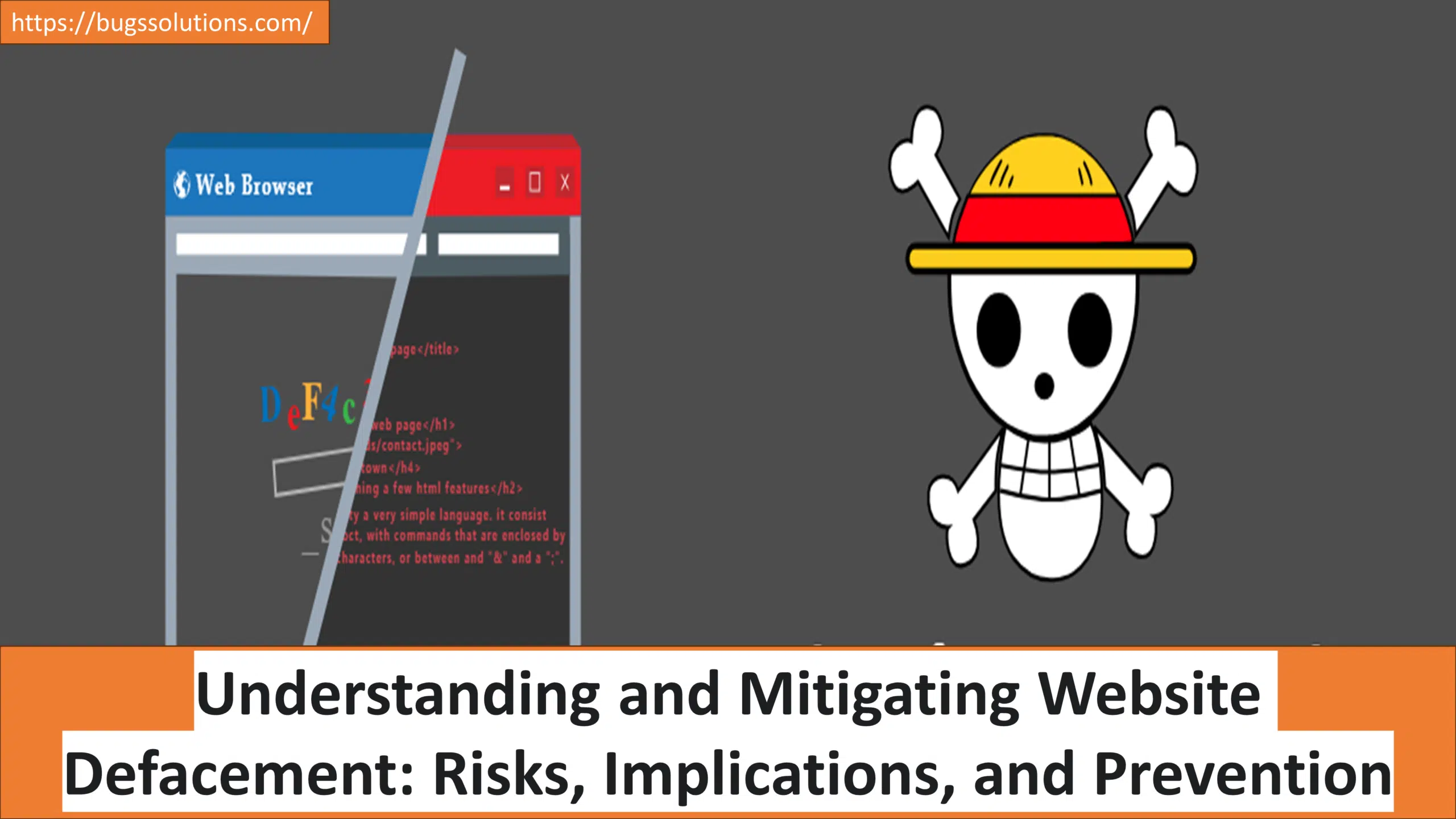Understanding Website Defacement
Website defacement refers to an attack on a website that involves altering the visual appearance of the site or a specific webpage. This malicious act is typically carried out by system crackers, who gain unauthorized access to a web server and replace the hosted website with their own content.
One of the most common methods used for website defacement is through SQL injections, which allow the attacker to log on to administrator accounts and gain control over the website. Once the attacker has access, they can modify the website to suit their intentions.
The Nature of Website Defacements
When a website is defaced, the defacer often leaves behind a page that serves as their signature or “hacking codename.” This page may also contain messages or taunts directed towards the system administrator, highlighting their failure to maintain server security.
Also Read : India’s Bug Bounty Hunters on the Rise: Simple and Strong in Cybersecurity Game
While most website defacements are relatively harmless and serve as a means for the attacker to showcase their skills or gain recognition within the hacking community, there are instances where defacements are used as a distraction. In such cases, the defacement serves as a cover-up for more malicious activities, such as uploading malware or deleting important files from the server.
The Implications of Website Defacement
Website defacement can have several implications for both website owners and visitors:
- Loss of Trust: When a website is defaced, it can lead to a loss of trust among visitors. Seeing a hacked website can make users question the overall security and reliability of the website, potentially leading to a decline in user engagement and loss of business.
- Reputation Damage: A defaced website can significantly damage the reputation of the website owner or organization. It can create the perception that the website’s administrators are unable to protect their systems, which can have long-lasting consequences for the brand or individual associated with the website.
- Financial Loss: In some cases, website defacement can result in financial loss. This can occur if the defacement leads to a disruption in services, loss of customer data, or the need to invest in additional security measures to prevent future attacks.
- Legal Consequences: Website defacement is a criminal act in many jurisdictions. Those responsible for defacing websites can face legal consequences, including fines and imprisonment, if caught and convicted.
Preventing Website Defacement
Protecting a website from defacement requires implementing robust security measures and following best practices. Here are some steps that website owners can take to reduce the risk of defacement:
- Regularly Update Software: Keeping all software, including the content management system (CMS) and plugins, up to date is crucial. Updates often include security patches that address vulnerabilities that could be exploited by attackers.
- Strong Authentication: Enforce strong passwords for all user accounts, especially administrator accounts. Implementing multi-factor authentication can provide an additional layer of security.
- Secure Network Connections: Use secure protocols, such as HTTPS, to encrypt data transmitted between the website and users. This helps protect against attacks that intercept sensitive information.
- Web Application Firewalls (WAF): Implementing a WAF can help detect and block malicious traffic targeting the website. WAFs can identify and prevent common attack vectors, including SQL injections and cross-site scripting (XSS).
- Regular Backups: Regularly backing up website files and databases is essential. In the event of a defacement or other security incident, having recent backups allows for a quicker recovery process.
- Security Audits: Conduct regular security audits to identify any vulnerabilities or weaknesses in the website’s infrastructure. This can help address potential issues before they are exploited by attackers.
Responding to Website Defacement
In the unfortunate event that a website is defaced, it is crucial to respond promptly and effectively. Here are some steps to take:
- Take the Website Offline: Temporarily take the website offline to prevent further damage and investigate the extent of the attack.
- Secure the Server: Identify and address the vulnerability that allowed the defacement to occur. This may involve patching software, closing security loopholes, or seeking professional assistance.
- Restore from Backups: If available, restore the website from a recent backup. This will remove the defacement and restore the website to its previous state.
- Investigate the Attack: Conduct a thorough investigation to determine how the defacement occurred and if any other malicious activities took place. This can help prevent future attacks and identify any compromised data.
- Communicate with Users: Inform users about the incident, the steps taken to address it, and any potential impact on their data or security. Transparency can help rebuild trust.
- Improve Security Measures: Learn from the incident and implement additional security measures to prevent similar attacks in the future.
Conclusion
Website defacement poses a significant threat to the integrity, reputation, and trustworthiness of websites and their owners. Understanding the nature of website defacement, its implications, and implementing strong security measures can help mitigate the risk of such attacks. Prompt and effective response to defacements is crucial in minimizing the impact and rebuilding trust with users.










